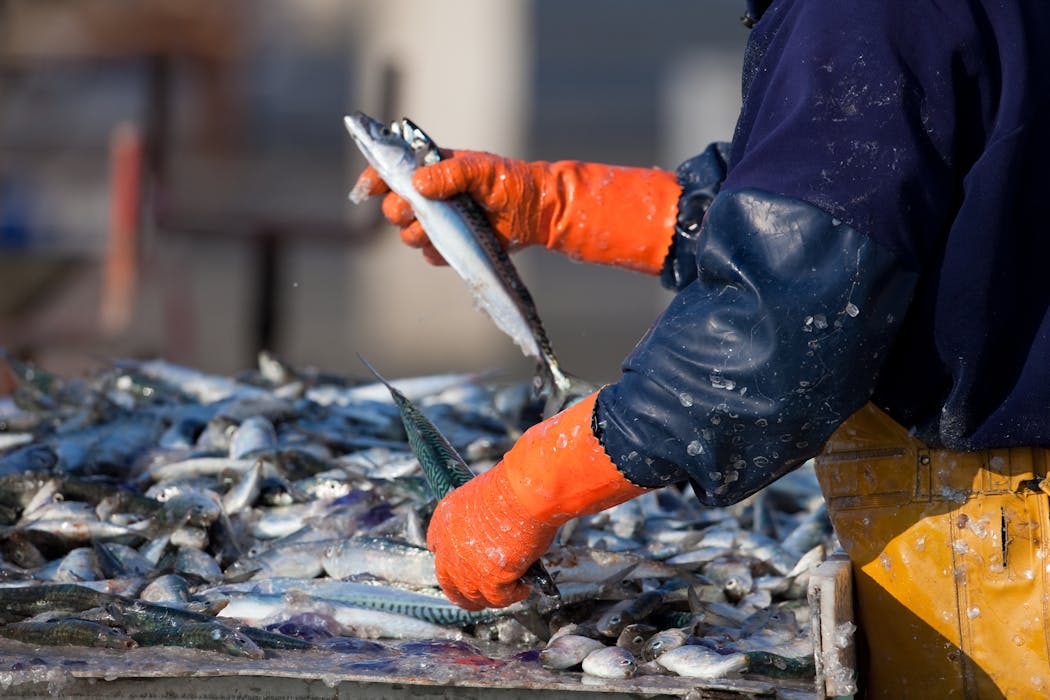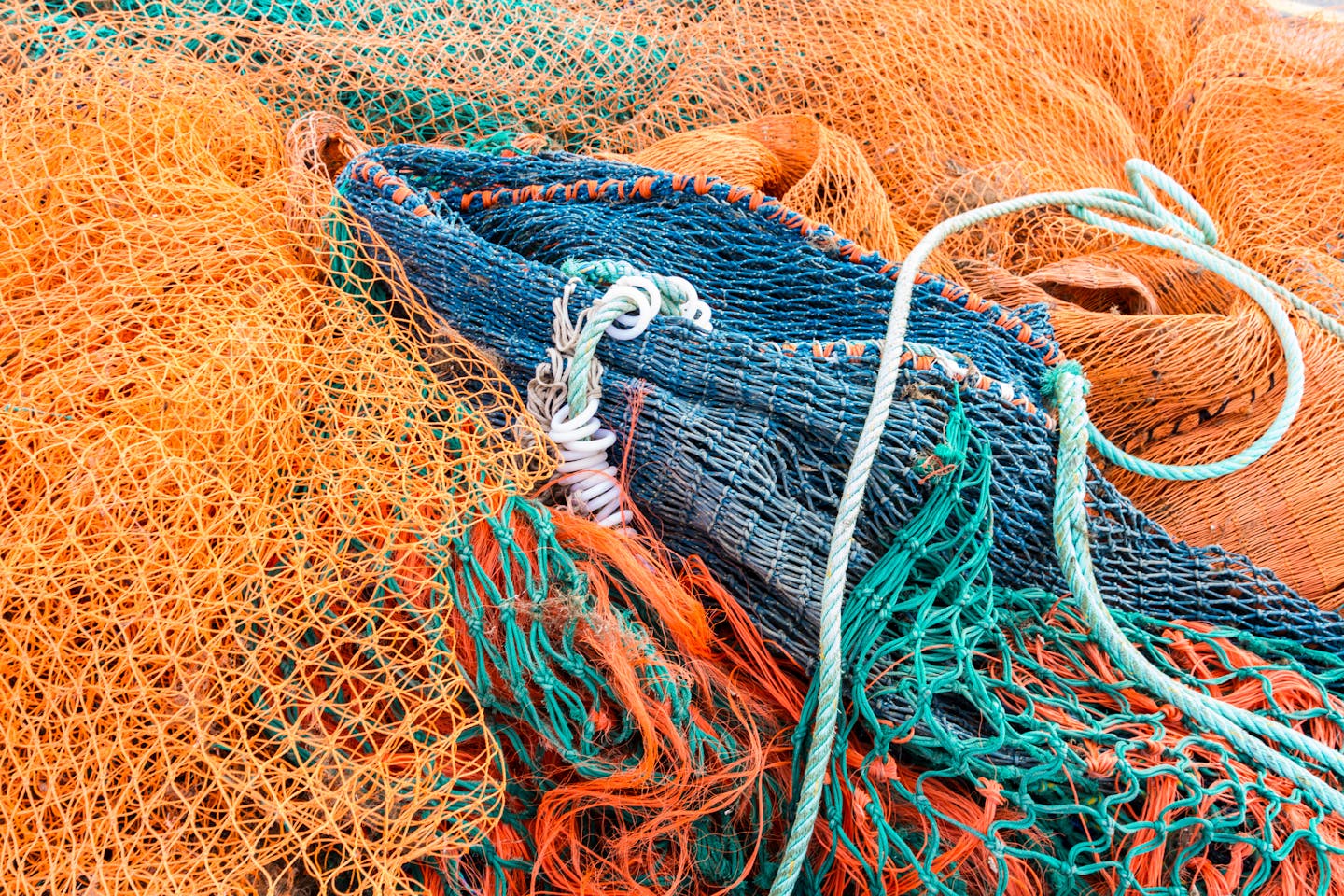
Most of the UK’s commercial fish stocks are not in a healthy state, according to a new landmark report.
Marine conservation charity Oceana UK’s Deep Decline report – one of the most comprehensive analyses of fish stocks since Brexit – finds that half of the UK’s top ten commercial fish stocks are either critically low, overexploited, or both. These include icons of our seas such as North Sea cod, North Sea herring and north-east Atlantic mackerel.
Only 41% of the UK’s commercial fish populations have been found to be healthy. A quarter are being fished beyond sustainable limits. And one in six are both critically low and yet still being overfished, placing them on a course to collapse. Many others, like skates, have been so historically depleted that they have all but disappeared and no longer even appear in statistics.
This disaster was entirely predictable and avoidable. Nearly five years on from the UK’s historic rupture from Europe, most people struggle to name any benefits from Brexit. One of the few benefits I can think of is the power to manage our fisheries without being beholden to the annual horse trading for fishing quotas in Brussels.
Freed at last from the constraints of collective bargaining, the UK could make rational decisions to delivery healthier seas and prosperity for the fishing industry.
Management under the EU’s common fisheries policy was famously flawed. Rather than confront difficult decisions about how to share limited resources, politicians routinely set quotas far above scientific recommendation for sustainable fishing – exceeding them on average by a third over more than 20 years.
If a farmer took more sheep to market every year than they produced, they would soon be out of business. Fisheries ministers failed to apply the same logic, so fish stocks dwindled and fishermen lost their jobs.
But for UK fisheries ministers, it seems that bad habits are hard to unlearn, and they continue to ignore expert advice. Rather than enjoying a rebound, our seas remain in deep decline.

Take the humble cod. Once the cornerstone of UK’s national dish fish and chips, North Sea cod is now at such low levels that, in September 2025, the international body providing scientific evidence for fish catch regulation – the International Council for the Exploration of the Sea (Ices) – advised a zero catch quota to safeguard the future of the cod fishery. Yet North Sea cod is still being overexploited. Ignoring science risks a future where the nation’s favourite dish is no longer affordable or even available.
The Irish Sea is the worst affected region of the UK with four in ten of its stocks overfished according to Oceana’s report, up from a quarter just five years ago. In the Celtic Sea, quotas for cod in 2024 were set higher than the estimated number of adult fish left.
This is political negligence, not ignorance. The UK has world class fisheries science, yet ministers repeatedly ignore their own experts.
Ocean health underpins the UK’s blue economy, from fishing to tourism. Fishing alone supports tens of thousands of jobs, particularly in communities with few alternatives. When stocks collapse, boats tie up, processors shut down and skills honed over generations are lost.
Who is to blame for this avoidable calamity? Ministers obviously, but who are they listening to if not their scientific advisors? Paradoxically, for over 50 years, the large corporates of the fishing industry have been tireless cheerleaders for their own demise, urging ministers to let them catch more fish, in doing so putting short-term benefit over long-term sustainability and job security.
Those with small, local boats – those not raking in the big money – are left trying to eke out a living from a depleted ecosystem. The fact is, if you keep within nature’s limits, you can fish forever.
Read more: The secret to healthy and sustainable fish fingers – an expert explains
Ocean ally
There is more at stake than just emptied seas and ailing fisheries. The sea is one of our strongest allies in fighting climate change. Seagrass meadows, kelp forests and seabed sediments capture and store carbon, acting as natural defences. Overfishing and destructive bottom trawling damage these habitats and release carbon dioxide into the sea and atmosphere, stripping away our climate resilience just when we need it most.
Imagine instead a future of abundance. Herring shoals flashing silver. Puffins plunging into dense fish swarms. Porpoises chasing mackerel. Fin whales blowing once more in our waters. This vision is not fanciful.
Read more: Mussel power: how an offshore shellfish farm is boosting marine life
The good news is that recovery is possible. We need only look at healthiest stocks in Oceana’s report, such as west of Scotland haddock, western Channel sole and North Sea plaice. What did they all have in common? Catch limits set in line with scientific advice.
The truth is that strong nature protection is the friend of fishing, not the enemy it is often painted as. Globally, when areas of the sea are genuinely protected and destructive fishing methods are banned, nature rebounds at speed. Fish populations multiply, wildlife flourishes and coastal communities gain a secure future. Protected areas rebuild fish stocks and feed productive fisheries in surrounding waters.
With the right choices, the UK could have more abundant seas that provide both food and jobs while restoring the wonders of marine life. Overfishing is a political choice.
For too long, governments have chosen short term quotas over long term security. Recovery is also a choice: the UK should set a new course that gives both ocean life and fishing communities a fair deal and a prosperous future.
Don’t have time to read about climate change as much as you’d like?
Get a weekly roundup in your inbox instead. Every Wednesday, The Conversation’s environment editor writes Imagine, a short email that goes a little deeper into just one climate issue. Join the 45,000+ readers who’ve subscribed so far.
This article is republished from The Conversation, a nonprofit, independent news organization bringing you facts and trustworthy analysis to help you make sense of our complex world. It was written by: Callum Roberts, University of Exeter
Read more:
- David Attenborough’s Ocean reveals how bottom trawling is hurting sealife in horrifying detail
- How overfishing and shark-finning could increase the pace of climate change
- 8 ways that stopping overfishing will promote biodiversity and help address climate change
Callum Roberts receives funding from Convex Insurance Group and EU Synergy, and UK Natural Environment Research Council. He is a board member of Nekton and Maldives Coral Institute.


 The Conversation
The Conversation
 WTOP
WTOP CNN
CNN iHeartDogs
iHeartDogs Raw Story
Raw Story Insider
Insider The Daily Beast
The Daily Beast The Motley Fool
The Motley Fool WBAL-TV 11 Baltimore Sports
WBAL-TV 11 Baltimore Sports